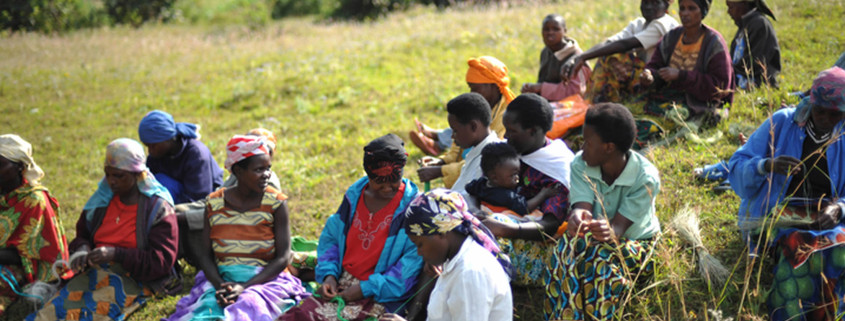Rwandan basketmakers weave their way into Macy’s
Inside the Gahaya Links workshop on the outskirts of Kigali, Rwanda’s capital, a group of women sit side by side against a brightly-painted wall. Using natural fibers and grasses, they pool their weaving skills to create exquisite hand-made baskets, inspired by the eastern African country’s art and tradition.
Seeing these women talking, laughing and working together, it’s hard to imagine that many of them were once enemies, belonging to warring tribes during the 1994 Rwanda genocide.
“[It’s] really amazing to see how a small piece of work, how culture can restore values in people, how healing comes through a small basket,” says Janet Nkubana, co-founder of Gahaya Links, the company that has made Rwanda’s hand-woven baskets internationally famous.
“And then people open up, forgive one another and get back together. They say hello, they interact, they visit, they share what they used to share before,” adds Nkubana, a master weaver herself.
Women in Rwanda have been handcrafting baskets for centuries, using them as containers to carry food and transport goods or as decorations during weddings and baby christenings.
Today, Gahaya Links‘ baskets have been coined “peace baskets,” an embodiment of reconciliation and healing in a country torn by conflict.
“If you just meet someone on the streets and go – you don’t really heal from what you went through,” says one of the women at the workshop. “But through this kind of association where we meet everyday, spending all day together, it makes you understand one another and forgive one another.”
An estimated 800,000 Tutsis and politically-moderate Hutus were murdered in just 100 days during the Rwanda genocide nearly two decades ago. After the violence ended, many Rwandan women whose husbands, fathers and sons were killed found themselves thrust into the unfamiliar role of being sole breadwinners for their families.
At the same time, Rwandans who had fled the genocide and earlier internal conflicts started returning in droves from neighboring countries.
One of them was Nkubana — decades ago, she had fled to Uganda where she grew up in a refugee camp.
Upon her return to the country, Nkubana opened a hotel with her elder sister in Kigali. Many traumatized women and children would often come to the hotel to beg for food.
READ THE FULL ARTICLE HERE: http://edition.cnn.com/2012/06/19/world/africa/rwanda-women-peace-baskets/index.html

